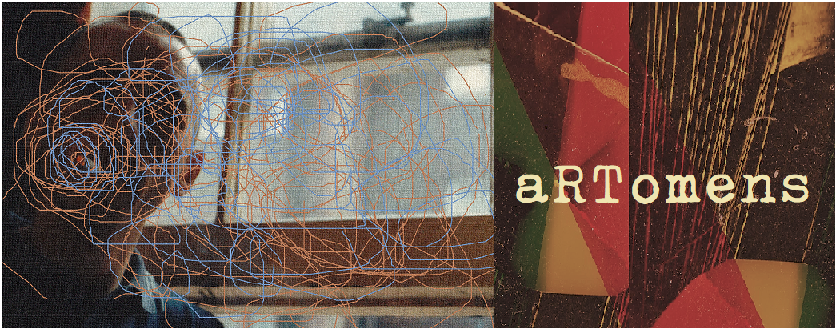1968 may have been the fag end of a decade-long space-age daydream but Kubrick romanced the stoned with his cinematic odyssey and a year later Neil Armstrong would take his 'small step' onto the moon so it ended with two big bangs; a third if you count the Cybernetic Serendipity show at London's ICA.
The catalogue has been reprinted by it's original producers, Studio International and it's a fascinating time capsule of tech-speak (Combinatorial geometry, anyone?), artistic vision, historical perspectives and essays by contributors to the show.
Some feared that the mechanisation of mankind would reduce people to robo-slaves serving The Man. Others pushed buttons and boundaries, breaking free from the computer's formal usage to play, write poetry, choreograph dance or design technicolor mobiles.
"Slaves to machines? Never!" People cry today, when they can tear their eyes away from their phones.
In the catalogue Bruce Lacey ponders our place in society in his short essay. 'He must change his environment and his society to suit himself', he writes. As opposed to being changed by society. Ah, such dreams. His robots are especially charming, like products of a mad professor, made for sci-fi B-Movies.
If computer art of this era looks like cave painting compared to modern methods I confess to preferring the primitive to the perfectly polished professional complexities of much that's made on computers today in the name of 'art'. That said, at the time, all this was state-of-the-art...I just like it, as I do Ray Harryhausen's creatures over most contemporary CGI.
Another confession: yes, as long-time readers will know, I use the computer as a tool for much of my work. The fact that I use it like a Neanderthal would is neither here nor there. Actually, it is; I like exploring limitations self-imposed by a refusal to study in order to accomplish anything like 'slick' digital art. There, I said it.
Curious parallel between '68 and now: there were big riots in Paris then and this show pushed technology into the limelight. Today, Paris has just witnessed serious rioting and this year's Turner Prize went to iPhone film-maker, Charlotte Prodger. Her work doesn't revel in the science, but instead uses technology as a vehicle for personal expression and observations, just as many of us do in our daily lives.
Hi-tech may have come a long way, to the point of dominating work and play, but the CS catalogue offers a different perspective. Then it was all about dreams and computerised schemes from a time when today's world was barely imaginable and the possibilities seemed endless.
The catalogue is available for purchase on the Studio International site for £20 plus p&p.


No comments:
Post a Comment